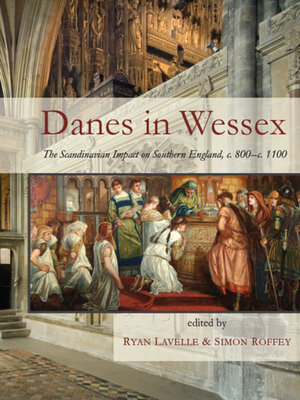
Sign up to save your library
With an OverDrive account, you can save your favorite libraries for at-a-glance information about availability. Find out more about OverDrive accounts.
Find this title in Libby, the library reading app by OverDrive.



Search for a digital library with this title
Title found at these libraries:
| Library Name | Distance |
|---|---|
| Loading... |
There have been many studies of the Scandinavians in Britain, but this is the first collection of essays to be devoted solely to their engagement with Wessex. New work on the early Middle Ages, not least the excavations of mass graves associated with the Viking Age in Dorset and Oxford, drew attention to the gaps in our understanding of the wider impact of Scandinavians in areas of Britain not traditionally associated with them. Here, a multidisciplinary and interdisciplinary approach to the problems of their study is presented. While there may not have been the same degree of impact, discernible particularly in place-names and archaeology, as in those areas of Britain which had substantial influxes of Scandinavian settlers, Wessex was a major theater of the Viking wars in the reigns of Alfred and Æthelred Unræd. Two major topics, the Viking wars and the Danish landowning elite, figure strongly in this collection but are shown not to be the sole reasons for the presence of Danes, or items associated with them, in Wessex. Multidisciplinary approaches evoke Vikings and Danes not just through the written record, but through their impact on real and imaginary landscapes and via the objects they owned or produced. The papers raise wider questions too, such as when did aggressive Vikings morph into more acceptable Danes, and what issues of identity were there for natives and incomers in a province whose founders were believed to have also come from North Sea areas, if not from parts of Denmark itself? Readers can continue for themselves aspects of these broader debates that will be stimulated by this fascinating and significant series of studies by both established scholars and new researchers.







